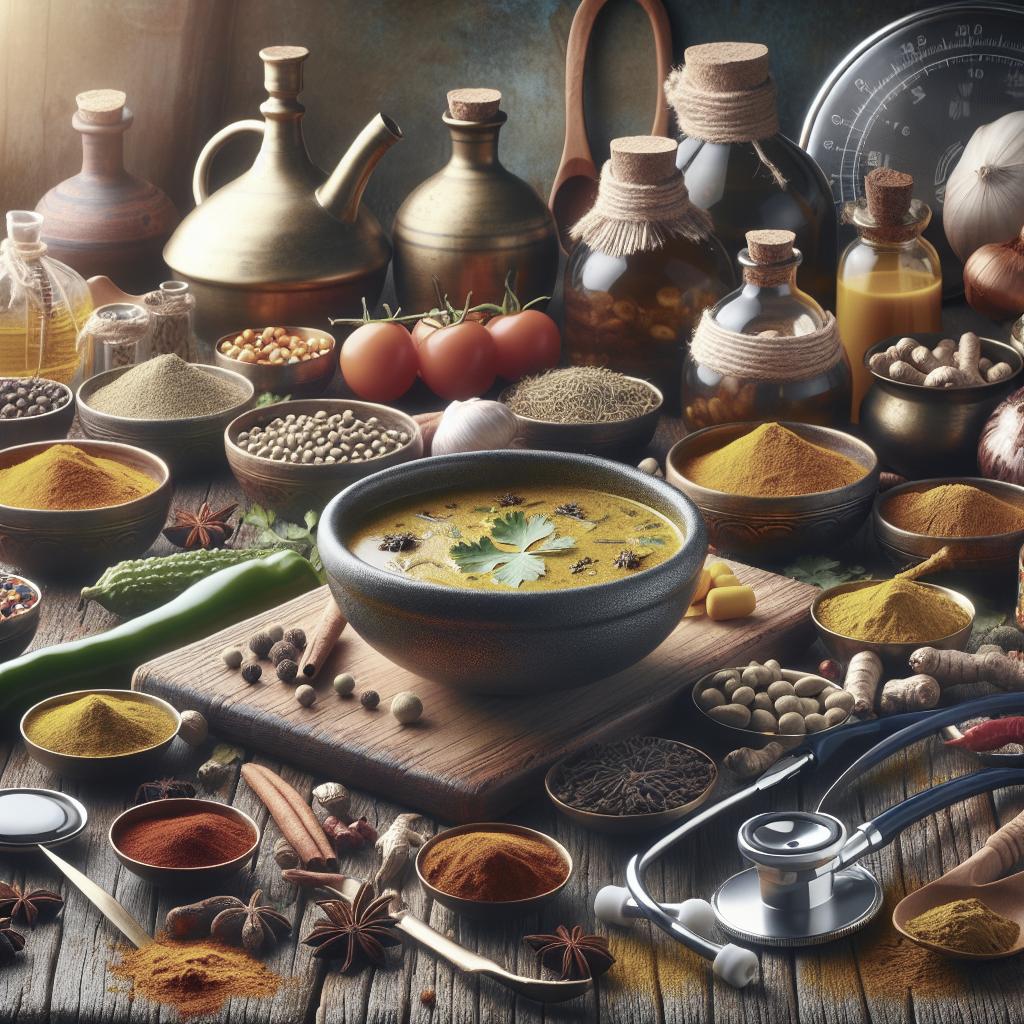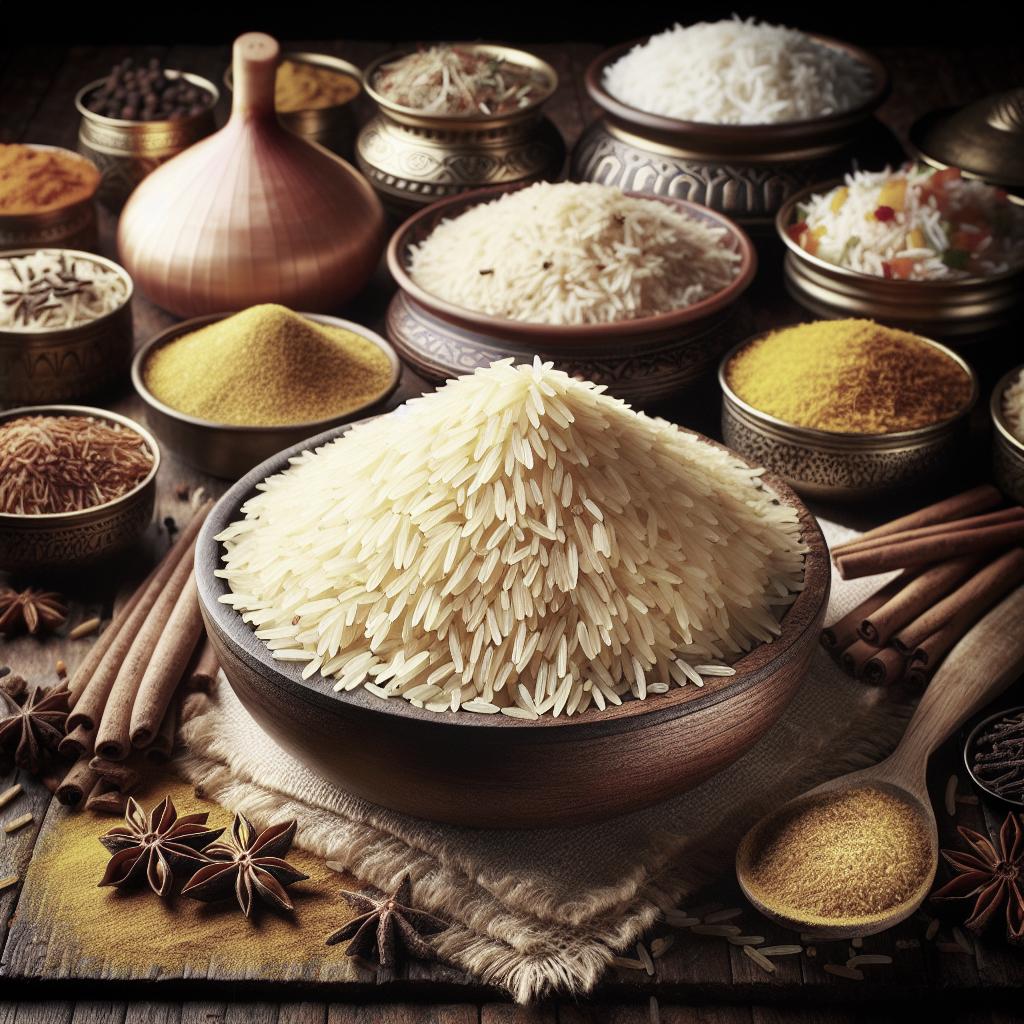“`html
The Role of Indian Curry in Health and Wellness
Introduction
Indian curry is much more than a flavorful dish. It’s a rich tapestry of spices and ingredients that not only satisfy your taste buds but also contribute significantly to health and wellness. In this article, we’ll delve into what makes Indian curry a staple for many households, explore the various types of this beloved dish, and highlight the impressive health benefits associated with its ingredients. Learn more about the spices that can strengthen your well-being, discover the role of curry in a balanced diet, and find inspiration to diversify your culinary skills with exciting curry recipes.
What Is Indian Curry?
Indian curry is a savory dish that originates from the Indian subcontinent, characterized by its use of a complex combination of spices or herbs usually including ground turmeric, cumin, coriander, ginger, and fresh or dried chilies. The word “curry” itself is derived from the Tamil word “kari,” meaning a sauce or gravy. In India, curries are customarily made with a blend of spices known as garam masala, with regional differences leading to an array of unique recipes.
The beauty of Indian curry lies in its diversity. No two curries are the same, even when they bear similar names. The endless variations hinge on local traditions, available ingredients, and personal preferences, resulting in dishes that are as diverse as India itself. From rich and creamy varieties to light and aromatic broths, Indian curries cater to every palate.
The Different Types Of Indian Curries
Masala Curry:
Masala curry is a generic term for a blend of spices used extensively in Indian cooking to create thick, hearty curries. The masala typically includes spices such as cumin, coriander, turmeric, and garam masala, often complemented by tomatoes and onions. These curries can be made with various meats like chicken, lamb, or fish, as well as vegetarian options using legumes and veggies.
The effervescent flavors of masala curry make it a favorite choice for many who appreciate robust dishes. The balance between spicy, tangy, and savory elements provides a satisfying experience that pairs perfectly with rice, naan, or roti. The versatility of masala curry offers endless opportunities to experiment in the kitchen while enjoying a nutritious meal.
Tikka Masala Curry:
One of the most popular variations of Indian curry is the tikka masala. Known for its creamy, tangy sauce typically featuring grilled pieces of chicken, tikka masala is beloved by curry enthusiasts worldwide. The sauce is made with a blend of spices including turmeric, paprika, and garam masala, often finished with a touch of cream or coconut milk for added richness.
Tikka masala is widely believed to have originated from Indian chefs adapting their recipes for the tastes of British diners. Despite this background, it retains authentic Indian flavors that highlight the intricate balance of spices. Its appeal lies in the harmonious blend of savory grilled meat and fragrant, spiced sauce.
Veg Curry:
Veg curries are an integral part of Indian cuisine, showcasing the wide variety of vegetables available across the country. These curries often rely on fresh produce along with healthy legumes like lentils and chickpeas, offering a plant-based alternative to meat curries. Highly nutritious, veg curries embody the spirit of Indian cooking, which is resourceful, diverse, and remarkably flavorful.
The variety of veg curries available means there’s something for everyone to enjoy. From spicy to mild, and creamy to clear broths, veg curries can be adapted to your personal taste and dietary needs. They are an excellent option for those looking to reduce their meat consumption while maintaining a diet rich in nutrients and flavor.
7 Health Benefits Of Indian Curry
Indian curry is not only a culinary delight but also a treasure trove of health benefits. Firstly, the spices used in curry are packed with antioxidants which aid in combating oxidative stress in the body. Turmeric, for instance, contains curcumin, a powerful antioxidant known for its anti-inflammatory properties, which can help reduce inflammation and support joint health.
Secondly, spices such as ginger and garlic, commonly used in Indian curries, have been shown to improve digestion. These ingredients stimulate digestive juices and help in breaking down food more efficiently. As a result, regular consumption of curries can contribute to better gut health and overall digestion.
Additionally, Indian curry can also promote cardiovascular health. The combination of spices helps to lower cholesterol levels and blood pressure, reducing the risk of heart diseases. The fiber content from vegetables and legumes further supports heart health, ensuring that curry is both a tasty and a heart-friendly choice.
Indian Spices That Boost Your Well-Being
Spices are the backbone of Indian curry, each bringing its own set of benefits to the table. Turmeric is a standout spice with its active compound curcumin, which has been extensively researched for its powerful antioxidant and anti-inflammatory effects. Incorporating turmeric in your diet can boost your immune system and may even lower the risk of certain chronic diseases.
Similarly, cumin is another spice known for improving digestion and aiding in weight management. It enhances the taste of the dish while promoting healthy metabolism. Another notable mention is cinnamon, which stabilizes blood sugar levels and adds depth to any dish it’s added to, making it a staple in many curry blends.
Furthermore, spices like coriander and fennel bring additional detoxifying properties. They are known to assist in the removal of toxins from the body and enhance kidney function, contributing to an overall sense of well-being. The incorporation of these spices in Indian curry makes it a holistic meal option.
Cookd For Instant Recipes
For those who want to dive into the world of Indian curry without spending too much time in the kitchen, instant recipes are the perfect gateway. Cookd is a platform that offers an array of easy-to-make curry recipes suitable for both beginners and experienced cooks. With step-by-step guides and pre-measured spices, preparing a delicious curry becomes a breeze.
Instant recipes often call for ingredients readily available in most grocery stores, ensuring you can whip up a curry in no time. These recipes allow you to enjoy authentic Indian flavors while exploring different combinations and personal preferences. Cookd provides a valuable resource to those looking to balance fast-paced lifestyles with healthy eating habits.
Summing Up
Indian curry is a multifaceted dish offering a plethora of health benefits, thanks largely to the spices and fresh ingredients it encompasses. From creamy tikka masalas to hearty masala curries and nutritious veg variations, there’s a curry for every palate and dietary preference. The integration of beneficial spices like turmeric, cumin, and ginger further elevates curry as a meal choice that complements a balanced diet.
Whether you’re a seasoned chef or a culinary novice, exploring the array of instant curry recipes available can help you incorporate this flavorful dish into your weekly meal plan with minimal effort. Overall, Indian curry is an excellent example of how delicious food can also promote wellness, serving as a perfect fusion of taste and health.
FAQs
1. What makes Indian curry healthy? Indian curry is healthy due to the vast array of spices and natural ingredients it contains, offering numerous nutritional benefits.
2. Can curries aid in weight loss? Yes, curries can aid in weight loss due to their high protein, fiber content, and metabolism-boosting spices like cumin and turmeric.
3. Are vegetarian curries nutritionally balanced? Vegetarian curries can be nutritionally balanced when they include a mix of vegetables, legumes, and the right spices, providing essential vitamins and minerals.
| Key Elements | Insights |
|---|---|
| Introduction to Indian Curry | Exploring its origins and appeal |
| Types of Curries | Includes Masala, Tikka Masala, and Veg Curry |
| Health Benefits | Includes antioxidant properties, digestive aid, and heart health |
| Spice Glossary | Features benefits of turmeric, cumin, cinnamon, and more |
| Instant Recipes | Fast and easy cooking with Cookd platform |
“`


